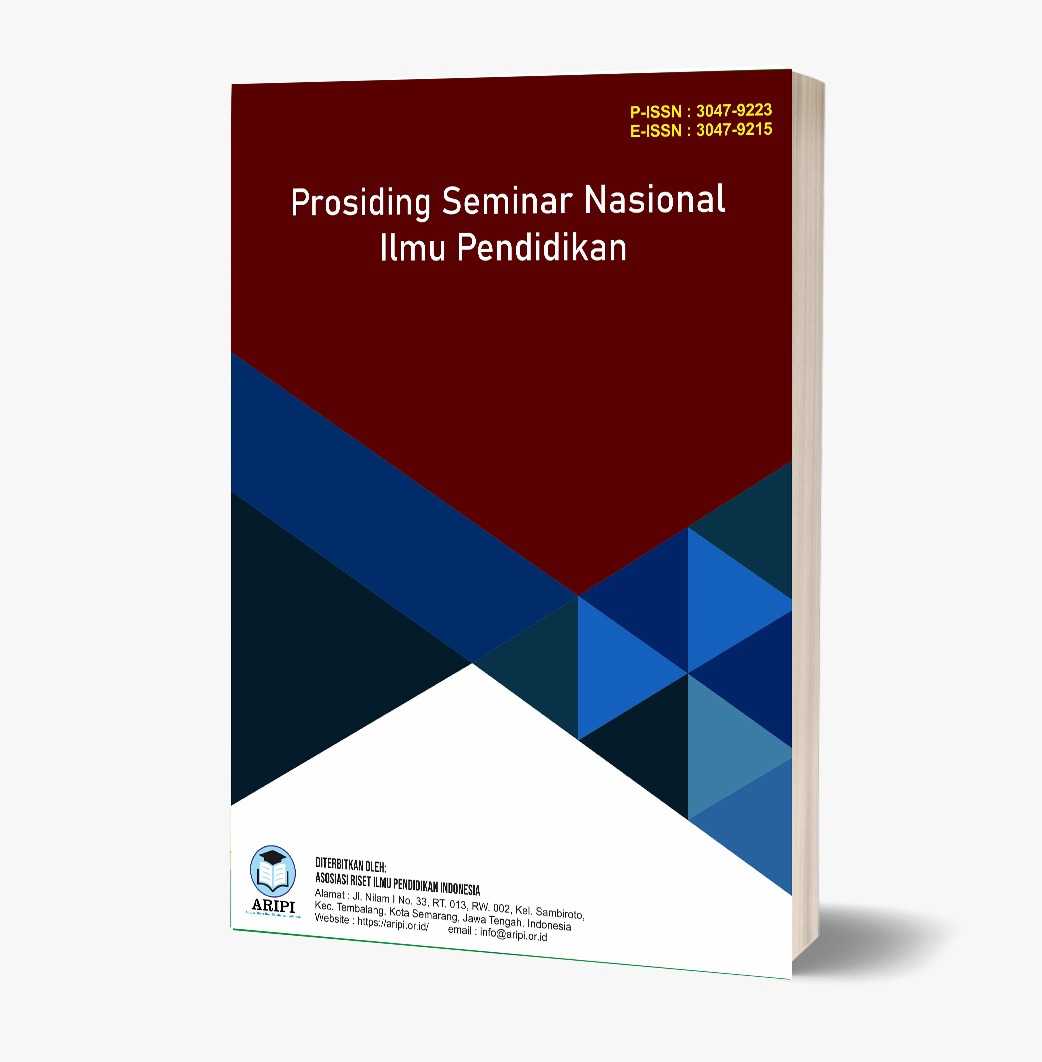The Influence of "Pojok Baca" on the Fulfillment of Children's Educational Rights in Turunrejo Village, Kendal District: Legal and Literacy Perspective
DOI:
https://doi.org/10.62951/prosemnasipi.v1i2.59Keywords:
Pojok Baca, Children, Educational Rights, Law, LiteracyAbstract
The 'Reading Corner' program in Turunrejo Village, Kendal District, has demonstrated an increase in children's reading interest and literacy skills. Observations and interviews with children and parents reveal that many children who initially rarely read are now more active using the reading corner, with some showing significant improvement in their reading and comprehension abilities. Despite these clear advances, challenges such as budget constraints, a lack of diverse book collections, and insufficient local government support persist. The considerable distance from the city center also affects the regular procurement of new books. Several studies highlight that similar challenges are faced by literacy programs in remote areas. Additional support, training for managers, and enhanced resources are necessary to maximize the benefits of the 'Reading Corner' program for children.
References
Ariyanti, D., & Wilopo, A. (2018). Pengaruh Pojok Baca Terhadap Minat Baca Anak di Wilayah Pedesaan. Jurnal Pendidikan Indonesia, 145–158.
Duque Cuéllar, A. (2023). The Role of Informal Education in Supporting Children’s Literacy in Rural Communities. International Journal of Educational Development.
Figueroa-Oquendo, M. (2024). Challenges in Maintaining Rural Literacy Facilities: Insights from Reading Corners. Journal of Rural Education Studies.
Habe, H., & Ahiruddin, A. (2017). SISTEM PENDIDIKAN NASIONAL. Ekombis Sains: Jurnal Ekonomi, Keuangan Dan Bisnis, 2(1), 39–45. https://doi.org/10.24967/ekombis.v2i1.48
Hakim, T., & Santoso, B. (2020). Community-Based Literacy Programs as a Solution for Rural Education Inequality. Journal of Rural Education and Development.
Ismail, A., & Fitria, R. (2020). he Role of Non-Formal Education in Improving Literacy in Rural Areas. Journal of Educational Innovations.
Karim, A., Umam, K., Abidin, A. R., Nurcahyati, N., & Riskiatin, S. (2023). Gerakan Literasi Desa (Gelisa) Untuk Meningkatkan Minat Baca Anak-Anak Di Desa Bloro Kecamatan Besuki Kabupaten Situbondo. Ngarsa: Journal of Dedication Based on Local Wisdom, 3(2), 109–124. https://doi.org/10.35719/ngarsa.v3i2.415
Prof. Dr. Suteki, S.H., M. Hum, Galang Taufani, S.H., M. H. (2022). Metodologi Penelitian Hukum (Filsafat, Teori, dan Praktik) (cetakan ke). PT RajaGrafindo, Depok.
Sari, N., & Pratama, H. (2019). Partisipasi Masyarakat dalam Mengembangkan Pojok Baca di Wilayah Rural. Jurnal Pemberdayaan Komunitas, 65–77.
Sutomo, H. (2022). Legal Framework for the Fulfillment of Children’s Educational Rights in Rural Areas Through Informal Education. Journal of Educational Law and Policy.
UNDANG UNDANG REPUBLIK INDONESIA NOMOR 20 TAHUN 2003 TENTANG SISTEM PENDIDIKAN NASIONAL. (2003).
Wijayanto, R. (2021). Government and Community Collaboration in Supporting Literacy Programs in Rural Areas. Journal of Public Service and Literacy.
Downloads
Published
How to Cite
Issue
Section
License
Copyright (c) 2024 Prosiding Seminar Nasional Ilmu Pendidikan

This work is licensed under a Creative Commons Attribution-ShareAlike 4.0 International License.







